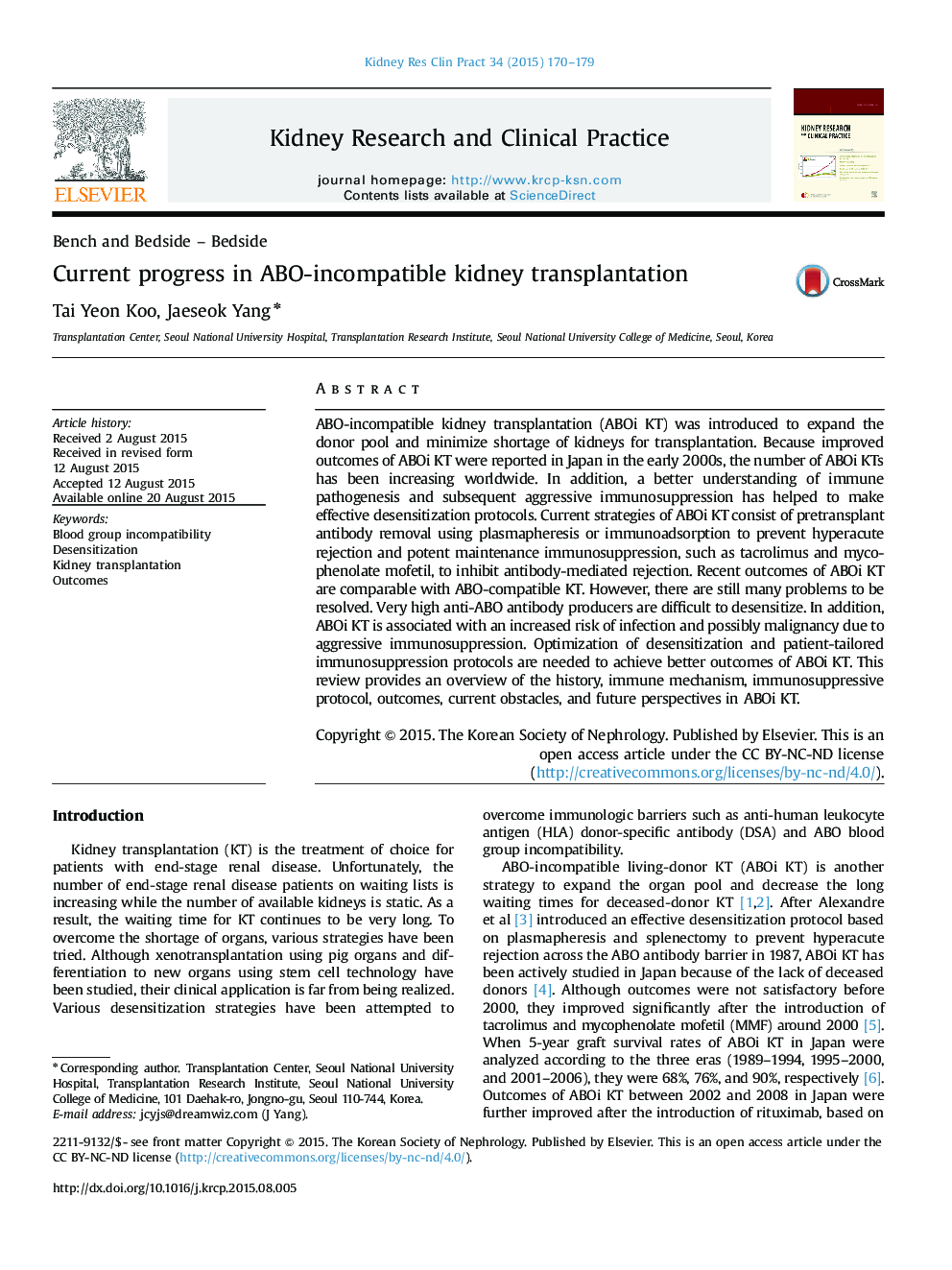| Article ID | Journal | Published Year | Pages | File Type |
|---|---|---|---|---|
| 3890841 | Kidney Research and Clinical Practice | 2015 | 10 Pages |
ABO-incompatible kidney transplantation (ABOi KT) was introduced to expand the donor pool and minimize shortage of kidneys for transplantation. Because improved outcomes of ABOi KT were reported in Japan in the early 2000s, the number of ABOi KTs has been increasing worldwide. In addition, a better understanding of immune pathogenesis and subsequent aggressive immunosuppression has helped to make effective desensitization protocols. Current strategies of ABOi KT consist of pretransplant antibody removal using plasmapheresis or immunoadsorption to prevent hyperacute rejection and potent maintenance immunosuppression, such as tacrolimus and mycophenolate mofetil, to inhibit antibody-mediated rejection. Recent outcomes of ABOi KT are comparable with ABO-compatible KT. However, there are still many problems to be resolved. Very high anti-ABO antibody producers are difficult to desensitize. In addition, ABOi KT is associated with an increased risk of infection and possibly malignancy due to aggressive immunosuppression. Optimization of desensitization and patient-tailored immunosuppression protocols are needed to achieve better outcomes of ABOi KT. This review provides an overview of the history, immune mechanism, immunosuppressive protocol, outcomes, current obstacles, and future perspectives in ABOi KT.
